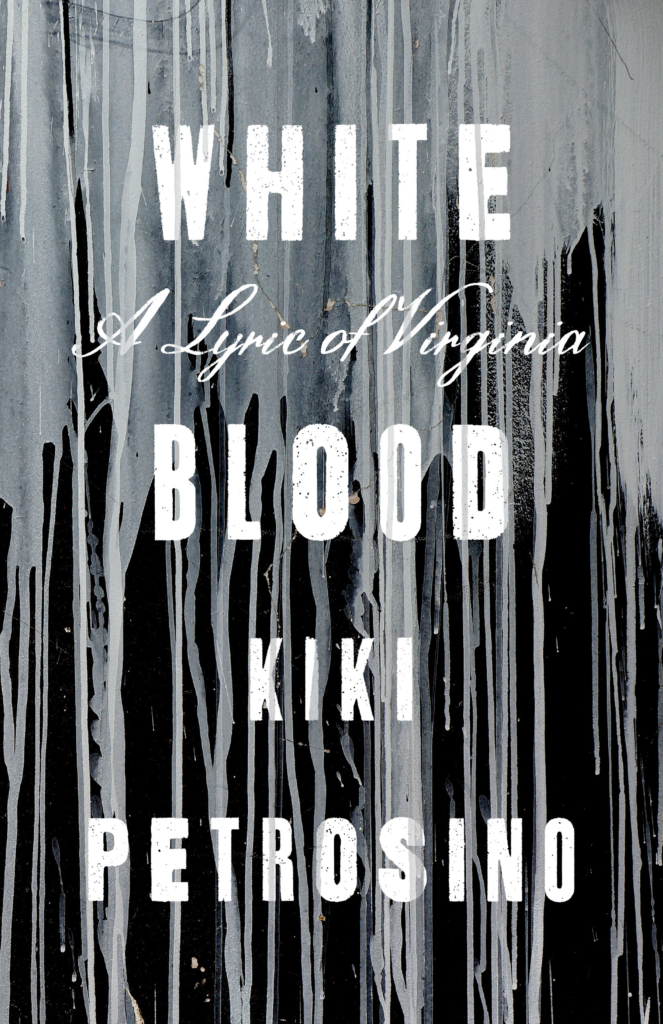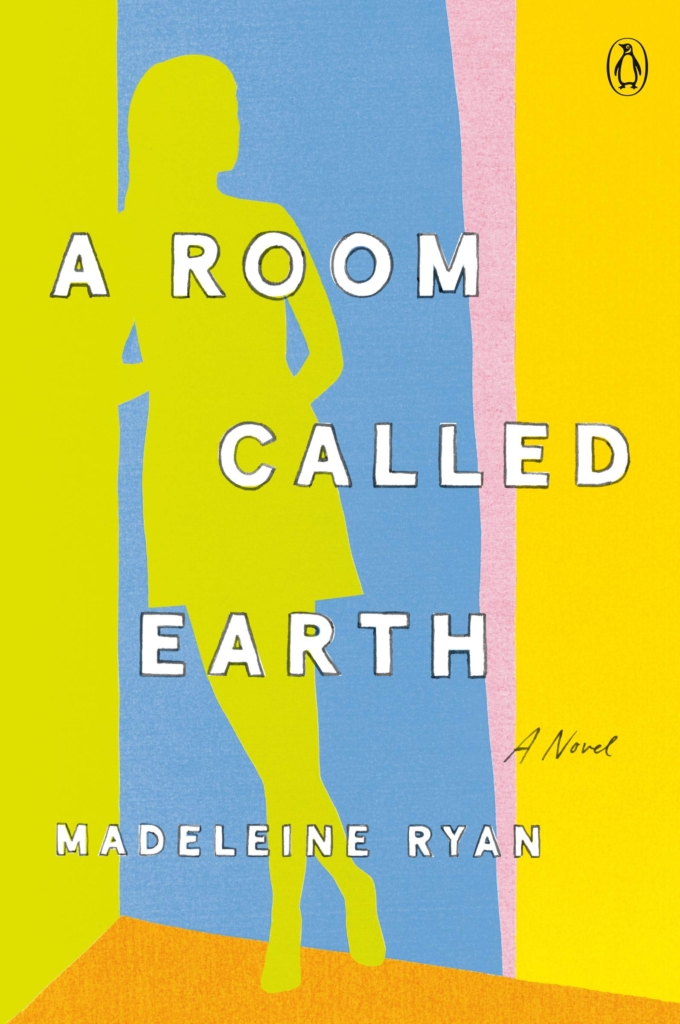
White Blood: A Lyric of Virginia by Kiki Petrosino
Kiki Petrosino’s White Blood: A Lyric of Virginia starts with a stunning prelude, in which the reader, absorbed into the second person speaker, is taken on a chase sequence through a moving train. Engaging – in pursuit? combat? collaboration? – with the speaker’s ancestors, the poem ends with a ghostly image and then an utterance “O- / you begin.”
So the book begins.
Petrosino orbits topics of ancestry, and history, all while constructing one of the strongest arguments in favor of form in recent years. The text is interspersed with erasures (similar to the Petrosino pieces in our Fall 2019 issue), and features a masterful sonnet redoublé, along with an extended section meditating on the cult of Thomas Jefferson and a series of messages from the “Free Smiths” – Harriet and Butler Smith, two of Petrosino’s ancestors. Petrosino’s speaker receives various imperatives as they encounter (or are foiled in their attempts to encounter) their own history. “Write about me,” dictate the dead in “Instructions for Time Travel”; “Read the amendment” and “Tell us what it’s like” order the Free Smiths in two separate final lines. Yet the book doesn’t end, really, or answer those orders in full clarity. The final section of the book is labeled an interlude, and the last interaction with the Smiths – described as “freedom, for now” – is not direct communication but instead the speaker approaching their graveyard.
When I first texted Editor-in-Chief Emeritus David Ehmcke after receiving this book, he responded: “Kiki writes perfect poems.” I have to agree. The poems are perfect technically, and perfect in their combination of confidence and ambivalence. White Blood feels complete without over-reaching into resolution, and this book is a testament to the difficulties of connecting with one’s history – and the rewards of those difficulties.
-Morgan Levine

A Room Called Earth by Madeleine Ryan
It is difficult to express how much joy I took in Madeleine Ryan’s A Room Called Earth. Very little happens—a woman in Melbourne, Australia gets ready for and attends a house party—but Ryan’s unnamed narrator infuses every word with such precise humor, warmth, and intimacy that I finished the novel feeling like I knew her better than most of my friends and family, despite not knowing her name.
Though she never explicitly states so in the novel, Ryan has confirmed that her unnamed narrator is autistic, like Ryan herself, who was diagnosed while writing A Room Called Earth. This lack of explicit acknowledgement mimics the lack of representation of neurodiverse women in contemporary fiction (the work of Helen Hoang is a notable and delightful exception). One can read Ryan’s novel for “clues” of the narrator’s neurodiversity—she is easily overstimulated, thrives on repetitive behaviors, and is honest to the point of appearing to disregard social cues—but it is a far richer experience to think alongside her rather than attempt to fit her every characteristic within a diagnostic frame. And, as the narrator herself observes, “if there’s an objective reality that we all share, it has to be wordless.” This is not to say that A Room Called Earth argues for a “wordless” world, uninhibited by the constraints of language. Rather, it embraces the ambiguities of language, literature, and subjective experience as sources of joy. For Ryan’s narrator, learning how to create a world in which one can live is nothing short of miraculous, and the reader has the privilege of experiencing a fragment of that miracle.
-Spencer Grayson